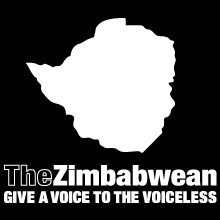Suffering for profit
Thursday, March 10th, 2011 by Upenyu Makoni-MuchemwaGiven a cursory glance, The Zimbabwean‘s Voice of the Voiceless campaign appears to be a noble idea and indeed a small poll of friends confirmed it. The suffering of Zimbabweans is indisputable, poverty unemployment and an estimated 2 million people who will go hungry this year point to a failed economy and bad governance, issues that must be become part of a greater public debate.
I recall reading a study that said people have a 15 second attention span when surfing a website. It’s not surprising then that the exploitative subtext of this campaign is not easy to see:
Should the Voiceless Campaign inspire you to continue to remain informed, you can consider purchasing a subscription through this website. Alternatively, there are many organisations within Zimbabwe that are unable to access the news. Please consider the purchase of a subscription on their behalf, by using the ‘Give a Voice to the Voiceless’ tab on this page.
The Zimbabwean is seeking to increase it market share and thus it’s revenues. There is nothing wrong with this, except that Mr Mbanga seeks to turn the suffering of Zimbabweans into profit. His model is hardly new; it uses the same morally corrupt rationale as the aid industry’s illustration of Africa as pot-bellied children covered in flies, and helpless women who have been raped and battered by illiterate AK-47 wielding primates.
On a list of credible news sources, the Zimbabwean ranks lower even than the Herald. There have been countless times when I have read a story, and have been shocked and alarmed, only to remember that I live in Zimbabwe, I was there when it happened and it was nowhere near the chaotic carnage that the Zimbabwean seems to take pleasure in describing in lurid detail. That is not to say that there is no suffering in Zimbabwe, the pictures on the website are of real people. But it is a shame that they and the photographers who took them would allow their images to be manipulated for the profit of the individual who publishes and edits the paper.
In choosing to publish a newspaper Mr. Mbanga should adhere to industry standards in terms of ethics and principles, none of which he as editor and publisher of the Zimbabwean seems to be familiar with. If he wanted to do something about the situation in Zimbabwe, then he would be a man and employ journalists who are actually in Zimbabwe, he would navigate the legal quagmire and publish here. It may be difficult but it is not impossible. There is no honour in exploitation. All the Zimbabwean really does is add to the misinformation that make people believe Africa is dark continent peopled by even darker savages and that the sum of Zimbabwe, with its different peoples, languages, cultures and experiences of politics is Robert Mugabe. It is not. Like many other alleged Zimbabweans, he has chosen to abandon the struggle and throw stones from a safe distance.
True Zimbabweans who work for progress in this country fight from where they stand. The real fight is on the ground, it is in the rural areas, it is in Chiadzwa, it is in Mbare, it is in a magistrate’s court, it will never be in the safe confines of a flat or hotel in London or Johannesburg.










